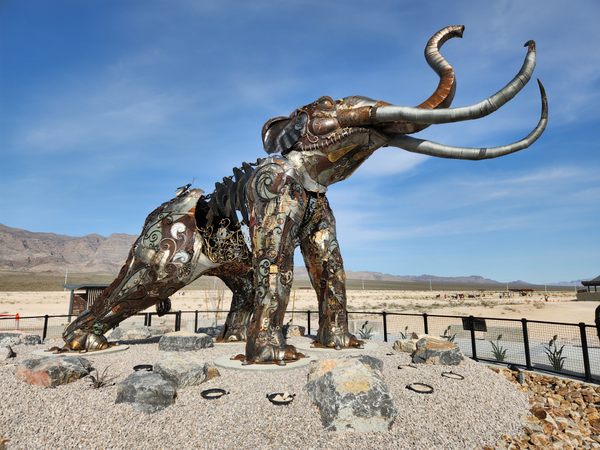The Las Vegas Valley is the improbable site of world-class fossils of late Pleistocene megafauna (large animals), including such iconic species as the saber-toothed cat, the giant ground sloth, the mammoth, and the American horse, camel, and lion.
The fossils occur in sediments preserved around the northern side of the valley, which were once wetlands ranging from shallow lakes to sloughs to marshes and meadows. The abundant vegetation would have attracted the herbivores, and the herbivores in turn attracted the carnivores. The large stretches of muddy ground would have also provided opportunities for fossils to be preserved, as bones could easily become buried.
The country dried out at the end of the Pleistocene, and then gullies and channels started to carve into the sediments as erosion worked upstream from the Colorado River system. Indeed, the upper end of Vegas Wash, the drainage entering Lake Mead from the Las Vegas Valley, crosses the fossil-bearing sediments at the sites, some 25 miles upstream from where it now enters the lake.
These fossil occurrences have already been recognized with the nearby Tule Springs Fossil Beds National Monument, and it’s appropriate that the State of Nevada extend the recognition and protection with this state park. The park includes a visitor center and museum, with interpretive displays and artists’ illustrations, and is centered around an early 1960s paleontological excavation that first documented the scale of the deposits.
An interpretive trail also runs through the original excavation. Near the beginning, the trail includes life-size metal silhouette sculptures of the megafauna that have been found.

